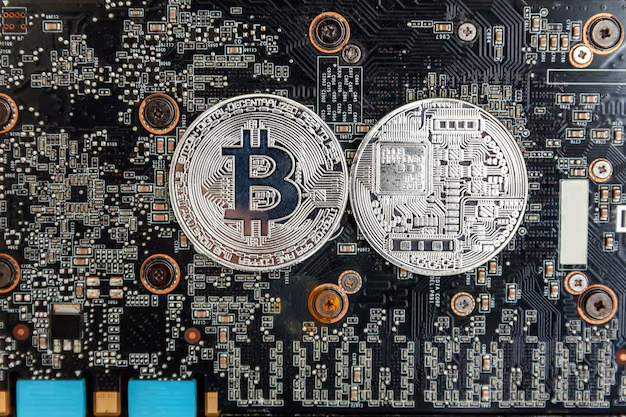How to Easily Mine Bitcoin on Your PC: A Beginner's Guide
The world of Bitcoin mining can seem mystifying to the uninitiated, but the allure of potentially profiting from cryptocurrency mining right from your personal computer makes it an intriguing prospect. If you're wondering how to start mining Bitcoin on your PC with ease, this comprehensive guide will walk you through the process, offer insights into the necessary tools, and help you understand what to expect along the journey.
🪙 Understanding Bitcoin Mining: What You Need to Know
What is Bitcoin Mining?
Bitcoin mining is the process through which new bitcoins are entered into circulation. It is also a critical component of the maintenance and development of the blockchain ledger. Mining is performed using highly sophisticated computers that solve complex computational math problems.
Key Points:
- Bitcoin mining supports the blockchain network by verifying transactions.
- Miners receive Bitcoin as rewards for solving math problems.
- This process ensures the security and integrity of the Bitcoin network.
Why Mine on a PC?
Mining Bitcoin traditionally requires significant capital investment in specialized hardware known as ASICs (Application-Specific Integrated Circuits). However, mining Bitcoin on a personal computer can still serve a purpose:
- Learning Experience: Beginners can get a hands-on understanding of the mining process.
- Ease of Access: Low entry barrier compared to industrial-scale mining.
- Participation: Contribute to the cryptocurrency ecosystem.
🔧 Setting Up Your PC for Mining
Hardware Requirements
While dedicated mining hardware offers greater efficiency and hash rates, beginners can start mining with existing PCs. Here are some considerations:
- GPU vs. CPU Mining: Graphics Processing Units (GPUs) are more efficient than Central Processing Units (CPUs) for mining due to their parallel processing capabilities. It's advisable to use a robust GPU if you aim for any meaningful returns.
- Cooling Systems: Mining can overheat components, so proper ventilation and cooling mechanisms are crucial.
- Power Supply: Ensure your PC's power supply can handle increased electricity consumption.
Software Options
To mine Bitcoin on a PC, specialized mining software is required. Here are popular options:
- CGMiner: A flexible open-source tool that supports ASIC and GPU mining.
- EasyMiner: Provides a user-friendly interface, perfect for beginners.
- BFGMiner: Offers advanced optimization features but requires technical know-how.
Pro Tip:Always download software from reputable sources to avoid malware.
🚀 Getting Started with Bitcoin Mining on Your PC
Step 1: Install Reliable Mining Software
After choosing your preferred mining software, download and install it on your PC. Ensure that your system meets the software's technical requirements.
Step 2: Join a Mining Pool
Mining Bitcoin independently on a personal computer is unlikely to be profitable due to the high level of difficulty. Instead, consider joining a mining pool:
- Shared Resources: Pools combine the processing power of multiple users to improve the chances of mining a block.
- Regular Payouts: Members receive consistent, albeit smaller, payouts based on their contribution to the pool’s hash rate.
Step 3: Configure Your Mining Software
Configure your mining software with the necessary information:
- Wallet address for receiving payouts.
- Mining pool credentials.
- Optimal settings for your hardware to maximize efficiency.
Step 4: Monitor and Optimize Your Mining Operation
Regularly monitor your mining activity to ensure that everything is running smoothly. Adjust settings as needed to improve performance and keep up with network changes.
Common Tips:
- Regularly update mining software.
- Monitor GPU temperature to prevent overheating.
- Consider undervolting to save on electricity costs.
⚠️ Challenges and Considerations
Mining Bitcoin on a PC comes with challenges that should be noted:
- Energy Costs: The power consumption of mining can significantly outweigh the profits from Bitcoin rewards.
- Hardware Wear: Continuous operation at full capacity can reduce hardware lifespan.
- Market Volatility: Cryptocurrency values fluctuate, impacting the potential returns from mining.
- Network Difficulty: As more powerful mining equipment becomes prevalent, the difficulty of mining Bitcoin increases.
📊 Practical Tips and Strategies
Stay Informed: Keep up-to-date with the latest mining news and changes in the cryptocurrency market. This knowledge can help you make informed decisions about whether mining remains viable for you.
Calculate Profitability: Use online calculators to estimate potential profits, taking into account electricity costs, hash rates, and network difficulty.
Diversify Efforts: While Bitcoin is the most well-known cryptocurrency, mining altcoins on your PC might prove more accessible and profitable due to lower difficulty levels.
📋 Quick-Reference Summary
| 😃 Tips for Beginners | ⚠️ Challenges to Watch For |
|---|---|
| ✅ Start with user-friendly mining software | ⚡ High energy consumption |
| ✅ Join a mining pool for consistent payouts | 🎛️ Hardware deterioration |
| ✅ Regularly monitor equipment performance | 📉 Cryptocurrency market fluctuations |
The Bigger Picture: Beyond PC Mining
While mining on a PC is an excellent stepping stone, it's important to explore other aspects of the Bitcoin landscape:
- Trading: Engaging in Bitcoin trading can complement your mining activities.
- Staking and Yield Farming: Explore other opportunities in the cryptocurrency ecosystem for potential profits.
- Blockchain Careers: Consider careers in blockchain technology if you’re passionate about the underlying tech.
🌟 Final Reflection
Even if you've started small, diving into Bitcoin mining on your PC can be an informative and exciting journey. While the immediate financial returns might not be noteworthy, the knowledge gained and the opportunity to engage with cryptocurrency at a technical level are invaluable. Remember, the world of cryptocurrencies is as much about participating in a global, decentralized technology movement as it is about potential financial gains. Happy mining!

